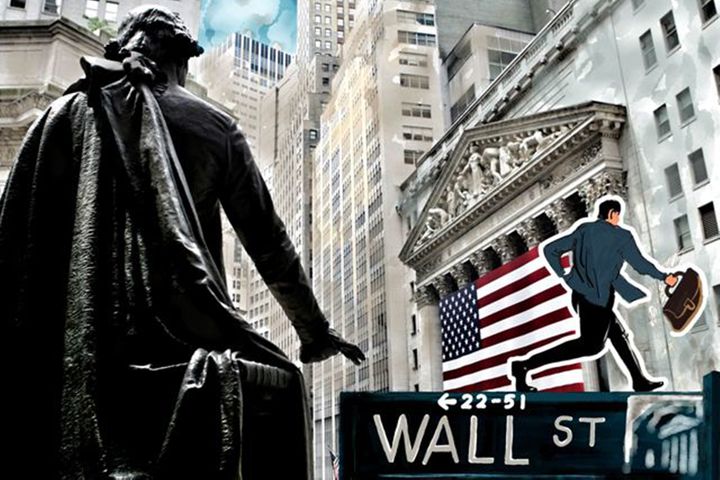 As US Fed Kicks Off New QE Round, China Must Be Alert to Outside Economic Stresses
As US Fed Kicks Off New QE Round, China Must Be Alert to Outside Economic Stresses(Yicai Global) March 16 -- Despite the US Federal Reserve's announcement that it would cut interest rates to near zero and conduct a new round of quantitative easing, the market has fallen sharply. Participants said the market believes that China will continue to be a safe haven, but it must be alert to external pressures and do a good job managing expectations.
In the face of the coronavirus epidemic's impact on the market, the Fed cut rates to almost zero and unveiled USD700 billion of QE, it said early this morning China time, adding that it will unveil more forward-looking guidance and asset-buying policies in the future. However, feedback from the capital markets remained negative. The three major US stock index futures had dropped nearly 5 percent as of noon today, with Asia-Pacific stock markets also falling.
The market believes that China will continue to be a safe haven based on the extremely strict actions it has taken to prevent and control the coronavirus outbreak, Lu Ting, chief economist of Nomura Securities, China, told Yicai Global.
But China cannot underestimate three major risks now that it has basically curbed the pandemic at home: foreign Covid-19 patients entering China; the epidemic reviving due to dense population movement as companies get back to work, and the virus further spreading overseas, which is likely to reduce demand and impact Chinese exports. So China still needs countercyclical policies, Lu added.
In this regard, the People's Bank of China today decided to cut the reserve requirement ratio as a countercyclical measure.
The PBOC will trim the RRR one or two times in the second quarter based on the pace of operation resumption, according to Zhang Jun, chief economist with Morgan Stanley Huaxin Securities.
If the resumption of production is below expectation, too much liquidity will result in idle funds. China will continue to lower interest rates for the medium-term lending facility and the loan prime rate in the second quarter on a monthly basis, Zhang added, not ruling out that the PBOC may cut the benchmark deposit interest rate to ease the debt burden on banks.
Now that the virus' negative effects are obvious, managing expectations is much more important than enhancing policies, Zhang said.
The calmness and prudence policy makers show to the outside world will help avoid panic. In view of the dramatic decline in China's economic data in January and last month, data analysis is no longer meaningful, and the government and investors must focus more on the future.
The PBOC can maintain the established rhythm and does not need to rush to follow in the Fed's footsteps. The first priority of China's domestic monetary policy is to serve the goal of stable domestic growth and structural adjustment.
Wu Zhaoyin, director of macro strategy at Avic Trust, said that after the outbreak in China, investors generally expected a V-shaped reversal in China's economic growth in the second quarter due to the strong virus prevention and control measures. But as the global pandemic worsens and counter-measures intensify, the external risks to China's economy are rising. This will suppress the reversal in economic growth and could lead to a change in market expectations and pile pressure on stock markets.
Expectations on bonds are optimistic, however. Wu said that the interest rate gap between China and the US will increase further after the Fed cut borrowing costs, which will be in favor of domestic bonds but is likely to cause some volatility as interest rates have fallen too fast.
Editor: Peter Thomas